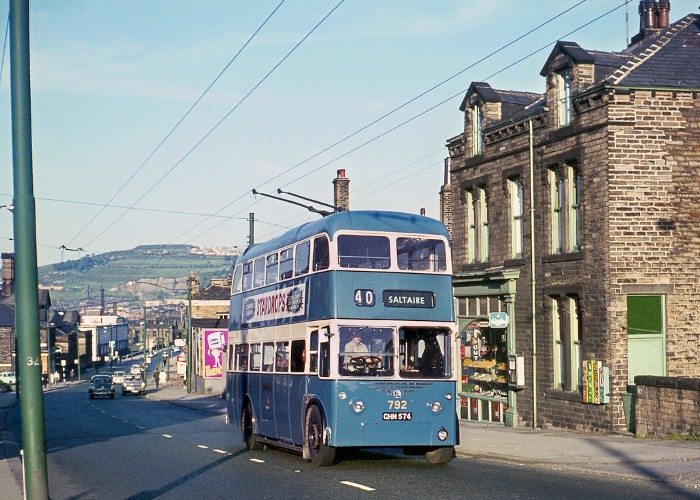
Above, a Bradford “trolley bus”.
The British Brainwashing Commissariat has happily (for it’s licence payers) produced a report on battery cars that indicates at least someone (they are Chinese!) is beginning to approach the supply of battery cars with a modicum of common sense!
GOTO: https://www.bbc.co.uk/news/business-61310513
Of course, had the UK been governed by governments composed of competent individuals as opposed to group thinking politically correct virtue signalling egotistical narcissists, the situation would be very very different!
Notwithstanding their myriad disadvantages – that make them impractical for normal day to day use – battery cars have an application, but in order to effectively operate, the vehicle must be specially designed to perform it’s task.
What is that task we hear you ask!
This: a city based taxi cab. Note the phrase, “city based”.
Rather than describe this in isolation, I will spell out a transport policy that a competent government would make:
The fictional Jim Hacker was keen on an integrated transport strategy and was of course stymied by Sir Humphrey Appleby, GCB, KBE, MVO!
IF one is going to use battery cars effectively an integrated transport strategy is an essential prerequisite!
The integrated transport strategy would have the following:
A co-ordinated and centrally controlled approach to public transport which would mean that ALL railway stations and most bus stations would be in the same complex so passengers could walk under cover from the buses to the trains and vice versa. That taxi ranks would also be under cover to enable passengers to transfer similarly without getting wet when it rains. In addition, a multi-storey car park could – where suitable – be linked to the interchange in the same way.
Ring roads should be constructed around most sizeable towns and cities that do not already have them. At arterial junctions roundabouts need to be constructed (where they are absent) and multi storey car parks erected at these junctions. Park and ride bus services should transit between there arterial park and ride locations to terminate (and thus begin the journey in reverse) at the transport interchanges. These buses should be what we in Yorkshire used to call “trolley buses” – double decker buses with over head pick-up arms to pick up an external overhead electrical supply. These are cheaper than railed trams!
The arterial routes used by the trolley buses should make use of – wherever practical – bus lanes in which the trolley bus, battery taxis and emergency vehicles (fire/police/ambulance) would be allowed. Enforcement cameras would be deployed to catch motorists using these lanes.
There should be NO street parking on these arterial routes. Double red lines should be used where practical.
Battery cars should be restricted to specially designed taxis that would be restricted to these cities and suitable urban areas. For taxis and mini cabs that are not battery powered the bus lanes would NOT be open to them and they would have to queue along with other car drivers. Such vehicles would of course be able to exploit their ability to deliver passengers to and from the suburbs and elsewhere.
Such battery powered taxis would use a swap out battery system as described by the BBC.
Battery powered private cars would be allowed but they would be restricted to within specific areas – mainly large cities where air pollution is a problem.
Battery powered private cars would NOT be allowed where they present a danger to life (such as motorways) and mass inconvenience (C class roads in rural areas). I live in a rural area (Cornwall) and can testify that when a battery car breaks down or has a flat battery on a narrow country lane all chaos ensues! You see, the vehicle cannot be jacked up (without wrecking it) and the crane equipped vehicle cannot lift it due to the narrow lane most of which have Cornish hedges (stone walls covered with vegetation). These vehicles are generally dragged out of the way by a local farmer with a tractor. This results in severe damage to the vehicle (the battery car – the tractor is undamaged).
Battery powered private cars are OK IF the owner/user uses it to commute from a city’s suburbs into the centre when that journey is no more than say 15 miles. Owners/users of such battery powered cars should NOT be allowed to drive from say Epsom to West Penwith (or Penrith in Cumberland)!
This would of course require government (central and local) control and regulation!
